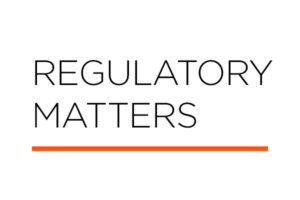
On April 16, 2021, the Hong Kong Exchanges and Clearing Limited (“HKEX”) released a public consultation paper relating to possible changes to its existing corporate governance code and related listing rules. The scope of the consultation includes a wide variety of topics, touching on corporate culture, ESG disclosure, independent director tenure, board diversity to updates to board committee composition, and more. You can download Glass Lewis’ full response here:
Glass Lewis is generally supportive of the changes that have been proposed. Some of the positive developments include:
- Incorporating an increased emphasis on corporate culture, which can also contribute to anti-corruption and improved whistleblower protections. A focus on culture, ethics, and the promotion of good business practices, especially in locales where corruption may be endemic, may serve to reduce risk while protecting the reputation and legal and financial positions of companies.
- As proposed, Hong Kong is looking amend its approach to independent director tenure, which could result in additional shareholder votes on long-serving directors after 9 years of service. Such a practice wou allow shareholders to determine if they support the continued service of such a director in an independent capacity. This approach would match similar corporate governance practices already adopted by Malaysia and Singapore.
- Proposed changes put greater emphasis on gender as a fundamental element of board diversity, by recognizing that a board is not sufficiently diverse if a board’s members are of a single gender. However, the implementation of specific gender diversity targets or quotas is something that HKEX will have to work out.
- Nomination committee compositions would change to have a majority-independent committee with an independent chair, in line with international best practice (and Glass Lewis’ current standard). Increased committee independence matched with an independent chair could serve to improve the nominations process.
- The proposed changes would also see an explicit linkage between corporate governance and ESG matters, especially in relation to risk management. As ESG is gaining prominence within the investor community, risk committees are also becoming an increasingly common element of corporate governance, especially in Asia Pacific. Linking corporate governance, ESG, and risk management would serve to highlight the interplay between the three. Nonetheless, we believe that there is room for further improvement by incorporating risk committees into Hong Kong’s corporate governance frameworks.
That said, there are certain proposed changes that raise concerns. For example, we note a provision for companies to eliminate specified terms for non-executive directors. In this case, it is unclear if such a provision would otherwise allow for non-independent non-executive directors to not stand for periodic election by rotation. Such a change could lead to boards that may already be dominated by major or controlling shareholders see further entrenchment of those non-independent non-executive directors with little minority shareholder recourse.
Overall, the proposed changes are a step in the right direction for Hong Kong’s corporate governance practices, with some proposed practices matching or exceeding regional neighbors and peers in corporate governance best practices.
